Related Research Articles

Sture Allén was a Swedish professor of computational linguistics at the University of Gothenburg, who was the permanent secretary of the Swedish Academy between 1986 and 1999. Born in Gothenburg, he was elected to chair 3 of the Swedish Academy in 1980. He was also a member of the Norwegian Academy of Science and Letters and the Finnish Society of Sciences and Letters.

Carl XVI Gustaf is King of Sweden. He ascended the throne on the death of his grandfather, Gustaf VI Adolf, on 15 September 1973.
The Royal Academies are independent organizations, founded on Royal command, that act to promote the arts, culture, and science in Sweden. The Swedish Academy and Academy of Sciences are also responsible for the selection of Nobel Prize laureates in Literature, Physics, Chemistry, and the Prize in Economic Sciences. Also included in the Royal Academies are scientific societies that were granted Royal Charters.

Arne Carl-August Beurling was a Swedish mathematician and professor of mathematics at Uppsala University (1937–1954) and later at the Institute for Advanced Study in Princeton, New Jersey. Beurling worked extensively in harmonic analysis, complex analysis and potential theory. The "Beurling factorization" helped mathematical scientists to understand the Wold decomposition, and inspired further work on the invariant subspaces of linear operators and operator algebras, e.g. Håkan Hedenmalm's factorization theorem for Bergman spaces.
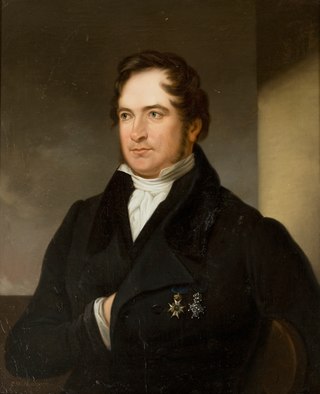
Erik Gustaf Geijer was a Swedish writer, historian, poet, romantic critic of political economy, philosopher, and composer. His writings served to promote Swedish National Romanticism. He was an influential advocate of conservatism, but switched to liberalism later in life.
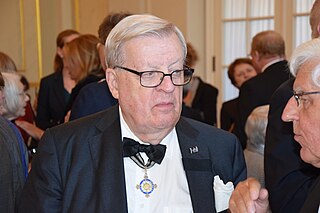
Stig Fredrik Strömholm, Swedish, former rector magnificus of Uppsala University and past president of Academia Europaea.

Henrik Schück was a Swedish literary historian, university professor and author.

Carina Burman is a Swedish novelist and literature scholar. Her research has been focused on Swedish 18th and 19th century literature. She completed her Ph.D. in literature in Uppsala in 1988 with a dissertation on the Gustavian writer Johan Henric Kellgren. Later production includes a critical edition of previously unpublished letters of the novelist and feminist pioneer Fredrika Bremer in two volumes (1996) and a biography of Bremer (2001).

Tommy Möller is a Swedish professor of Political science at Stockholm University, and a frequent conservative political commentator in the Swedish media.

Lars Evert Huldén was a Swedish-speaking Finn writer, scholar and translator. Born in Jakobstad, Finland, he was professor at Helsinki university 1964–1989. In 1986 Huldén received an honorary doctorate from the Faculty of Humanities at Uppsala University, Sweden. He was a member of the Norwegian Academy of Science and Letters from 1993.

Nils Ahnlund was a Swedish historian. He was professor of history at the then-Stockholm University College 1928–1955, and became a member of the Swedish Academy in 1941. He was the father of physician Hans Olof Ahnlund, literary scientist Knut Ahnlund and the grandfather of journalist and writer Nathan Shachar.

Sara Maria Danius was a Swedish literary critic and philosopher, and a scholar of literature and aesthetics. Danius was professor of aesthetics at Södertörn University, docent of literature at Uppsala University and professor in literary science at Stockholm University.
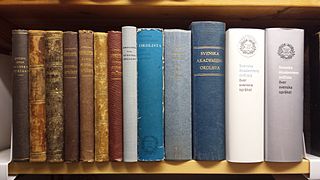
Swedish orthography is the set of rules and conventions used for writing Swedish. The primary authority on Swedish orthography is Svenska Akademiens ordlista (SAOL), a spelling dictionary published annually by the Swedish Academy. The balance between describing the language and creating norms has changed with the years.

Admiral Bengt Gustaf Gottfrid Lundvall was a senior Swedish Navy officer. He was Chief of the Navy from 1970 to 1978.
Vice Admiral Bengt Jacob Schuback was a Swedish Navy officer. He was Chief of the Defence Staff from 1978 to 1982 during which time the Soviet submarine U 137 ran aground in Swedish waters. Schuback was later the commanding officer of the Southern Military District from 1982 to 1984 and the, Chief of the Navy from 1984 to 1990.

Lars Lönnroth is a Swedish literary scholar.

Johan Börjesson was a Swedish prelate, poet, and dramatist, associated with the Swedish phosphorist and romanticist movements. He was holder of chair 3 of the Swedish Academy.
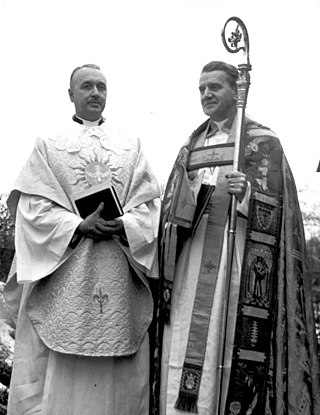
Helge David Ljungberg was a Swedish religious historian and Bishop of Stockholm from 1954 to 1971.
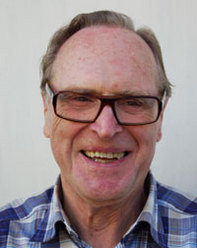
Karl Thorsten Gunnar Andersson was a Swedish toponymist, and a former Professor of Linguistics at Uppsala University.

Ernst Harald Riesenfeld was a Swedish theologian and Bible scholar, best known for his exegesis of the New Testament.
References
- ↑ "SCAS: News".
- ↑ Uppsala University Directory: Aleksandr Kan Archived 2011-07-16 at the Wayback Machine , accessed 2010-05-22
- ↑ Kan, Aleksander - Hemmabolsjevikerna. Den svenska socialdemokratin, ryska bolsjeviker och mensjeviker under världskriget och revolutionsåren 1914-1920, Svenska Dagbladet 2005-08-30 (in Swedish)
- ↑ "Gruppe 1: Historie" (in Norwegian). Norwegian Academy of Science and Letters . Retrieved 5 February 2011.